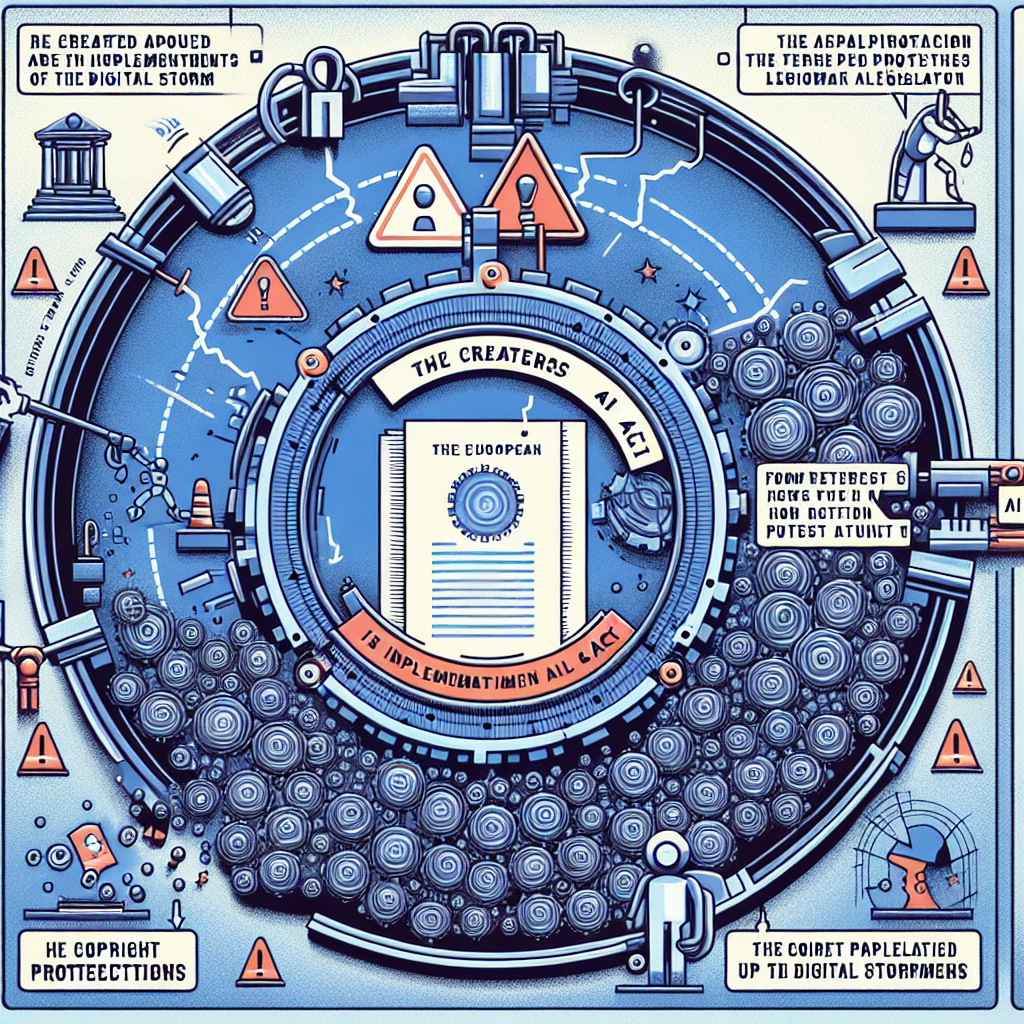AI Act Sparks Backlash From Creators
When the Gutenberg printing press emerged in the 15th century, it democratized information and sparked revolt among scribes who feared their craft would vanish. A similar uproar is brewing today in Europe, as contemporary creators raise their voices against the European Union’s Artificial Intelligence Act. The recently drafted AI legislation, intended to regulate potentially harmful AI systems, has unexpectedly ignited fierce opposition among artists, writers, and other creative professionals—many of whom believe the new rules fail to protect their rights. Truly, the AI Act sparks backlash from creators who fear they are once again being left behind by technological change.
Why Are Creators Upset?
The AI Act, passed by the European Parliament in March and now awaiting final legislative approval, includes provisions that appear thorough on the surface. It includes bans on certain types of biometric surveillance and sets rules for “high-risk” AI applications. But what it leaves out is what has creators up in arms—particularly the lack of direct protections for human-made content.
Over 1,400 European filmmakers, authors, artists, and musicians signed an open letter criticizing the legislation’s failure to compel AI companies to clearly disclose when and how copyrighted works are used when training their models. The signatories—prompted by organizations like the European Writers’ Council, the Federation of Screenwriters in Europe, and the European Composer and Songwriter Alliance—are demanding transparency, consent, and fair compensation.
Opaque Training Data is the Core Concern
Generative AI systems are trained using vast datasets scraped from across the internet. Often, this content includes images, music, and text created by artists who never gave permission for their work to be used. Creators argue that this practice amounts to intellectual property theft under a cloak of innovation.
Key demands from the creator community include:
- Mandatory disclosure of datasets used to train AI models
- Opt-in consent from rights holders before their content is used
- Fair compensation mechanisms for the use of creative work
- Robust enforcement measures to hold violators accountable
Currently, without “must-carry” clauses—that is, requirements that companies reveal their training data sources—the Act gives tech companies a loophole. It allows them to use copyrighted material without specific permission, as long as it’s considered “non-high-risk” AI. Creators see this as a failure to recognize the commercial value and ownership of their intellectual property.
Why This Matters Beyond the Arts
The implications of neglecting creators’ rights extend beyond the arts. Some experts warn that failing to regulate training data usage will incentivize exploitative and monopolistic behavior by major AI firms. This could set a global precedent that diminishes both copyright norms and artistic diversity.
Indeed, as European lawmakers finalize policy details, the European creative community urges them to reconsider key provisions. They believe the EU has an opportunity to enact global leadership not just on AI safety, but on AI ethics and fairness for creative labor.
What’s Next for the AI Act?
The AI Act is currently in its implementation phase, with member states preparing to enforce its requirements once it officially becomes law. But unless amendments are made, creators worry their concerns will be permanently sidelined.
As stated by the open letter, “The future of cultural diversity, media pluralism, and the livelihood of hundreds of thousands of professionals is now in the hands of EU lawmakers.” For now, it’s clear that the AI Act sparks backlash from creators who will not stay silent.
For further details on this developing story, visit the original article on The Hollywood Reporter.

